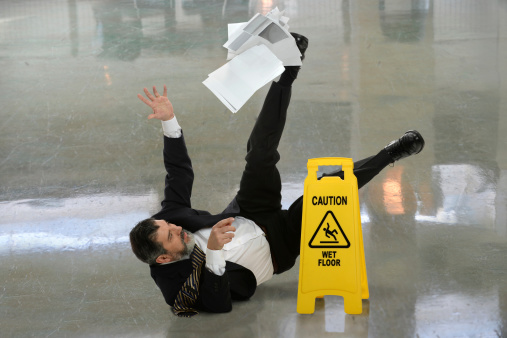By Brooke Chaplan
Workplace safety should rank high on any business owner’s priority list. One accident can result in serious injuries and a prolonged loss of productivity. You and your company can also face civil and regulatory penalties that can threaten its existence. Proactively working to minimize on-the-job dangers in your workplace is the best way to avoid unforeseen circumstances and costs later on.
Planning
Carefully assess the safety issues that threaten your employees and facilities. When you know the types of materials that can cause problems and the vulnerabilities of your equipment, you can craft a good safety policy. Part of the planning process should include defining and documenting every work process used within your company. Never stop planning. As time passes, your procedures and facilities will change so periodically conduct a review of your plans to ensure you and your managers stay aware of safety concerns.
Training
Every employee should complete safety training before starting with your firm to ensure they understand the safety issues that affect their job. After learning the best security practices for your company, your employees should receive thorough training for the tasks you expect them to perform. When people know how to use their tools and equipment properly and have a high awareness of safe work habits, you will create a safer environment for your workers.
Compliance
Make sure everyone in your company understands general rules that govern your human resources. Special rules might apply to your industry, so find out what laws and regulations are applicable to your industry. Companies that deal with hazardous materials, for example, must comply with regulations that ensure proper handling to safeguard the health of your employees and your community. If you depends on the use of vehicles, a different set of rules might apply. Compliance often requires expensive precautions, but they can help keep you and your business safe.
Prepare
Despite your best intentions and precautions, occasional accidents will likely occur during business. Get ready by having appropriate emergency gear stationed around your facility to minimize the damage. Start with basic equipment such as fire extinguishers and first aid kits, then get the emergency equipment that meets the particular needs of your business.
Companies that work with chemicals might need eye-wash stations. Truck drivers will probably need safety flares and other equipment that can help in the event of a breakdown. Contact a wrongful death attorney or an accident attorney if you feel like you need help understanding how to prepare properly for an accident.
Take charge of safety in your workplace using the above tips. The extra work you put into your safety planning and training will help you prepare for the worst and survive the occasional workplace incident that comes your way.
Brooke Chaplan is a freelance writer and blogger. She lives and works out of her home in Los Lunas, New Mexico. She loves the outdoors and spends most her time hiking, biking and gardening. For more information contact Brooke via Twitter @BrookeChaplan







